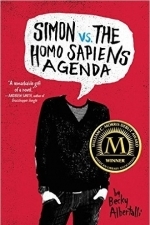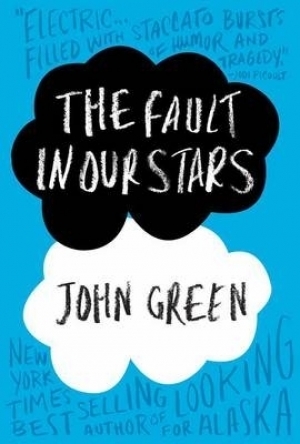
Dumfries House: An Architectural Story
Book
On 18 July 1754, William Crichton Dalrymple, the 5th Earl of Dumfries, laid the foundation stone of...
pheebs (3 KP) rated Simon vs. the Homo Sapiens Agenda in Books
Nov 23, 2017
‘The love child of John Green and Rainbow Rowell’ – Teen Vogue
“The best kind of love story.”—Alex Sanchez, Lambda Award-winning author of Rainbow Boys and Boyfriends with Girlfriends
This book is a whirlwind of emotions, as soon as I finished scouring its pages I felt as if I had to read the book all over again, I did then abruptly lent it to a friend who found it just as amazing as I did. It’s a heartfelt story which really seems to capture the essence of being a teen in modern-day society, dealing with our problems, our worries, our trials and tribulations.
The main character is Simon, a boy who is finding life hard, with an overly happy family who like to be very involved and love to talk openly about their feelings, something that Simon is finding increasingly hard more specifically with his sexual preferences. The protagonist of the story is an unlikely fellow who creates dilemmas in Simon’s mind as he wishes to save his previous ‘Blue’. Simon is surrounded by bountiful characters that link smoothly into to his life an thoughts in a normal manner. We learn about his family through his fond memories and thoughts as well as the conversations they exchange in the book, the same can be said for his closest friends. He has three friends that stand out as more prominent characters, the book also focuses on how his relations with them change and how it affects them.
The book is written in a subjective narrative, it tells us only the information that Simon knows so that we know no more or less than him, equating to us having a possibly bias view towards certain characters, thus once again making it more realistic. It deals with problems that teens struggling with their sexuality in day-to-day life face both in the real world and the cyber one. It reveals to us just how hard it is to control information that gets leaked out onto the internet, how fast it can spread and change your life in the ‘real’ world. Your life can be drastically altered by a few words and a persons malicious intentions and this book helps prove just how down heartening it can be as well as focusing on the light at the other end of the tunnel.
All of the characters play great roles in Simon’s life, he lives in a very open family so he feels as if he is keeping something terrible from them especially with of hand comments that his fathers sometimes makes. We read about different things in his life that he loves such as drama, as he attends school play rehearsals often.he deals with the struggles of maintaining friendships under pressure.
I would recommend this book to anyone no matter their age, race, gender or sexual preference. It’s a romantic coming of age comedy that warms me to my toes making me wanting to keep reading over and over again (as I have done many a time). If you liked ‘Will Grayson, Will Grayson’ by John Green and David Levithan then you will most definitely enjoy this book.
Kayleigh (12 KP) rated The Fault in Our Stars in Books
Jan 2, 2019
In my last review (of <a href="http://awowords.wordpress.com/2013/02/02/beautiful-creatures/">Beautiful Creatures</a>), I was a little harsh about the portrayal of love stories in teenage/young adult fiction. The backbone of this book is that slowly but surely, the two main characters, Hazel and Augustus, fall in love. It’s not some pre-determined, intense force that sweeps the characters off their feet. It’s slow and steady, with a few set-backs, much like Hazel’s breathing at times, if you like. As Hazel puts it, perfectly:
<blockquote>“I fell in love the way you fall asleep: slowly, and then all at once.”</blockquote>
There’s nothing glamorous – life goes up and down, it’s sad and it’s funny, it’s not fair. It’s real.
In The Fault in Our Stars, John Green introduces us to two extremely philosophical teenagers that have been through a lot more than most people, with the knowledge that there is only more hardship to come. He humanises something I know I have never really thought about – the feelings, and more specifically, the sense of humour cancer sufferers/survivors have throughout it all. I talk about the humour later, but something that really got the message across was Hazel finally admitting her biggest fear to her parents. Hazel, the girl who decided to become a vegetarian so as to “minimise the number of deaths I’m responsible for.”
<blockquote>“‘I’m like. Like. I’m a grenade, Mom. I’m a grenade and at some point I’m going to blow up and I would like to minimise the casualties, okay?’”</blockquote>
It was the realness of the characters that got me so attached. For the last third of the story, I was unabashedly sobbing (luckily, alone. The first time I finished this, I was on a bus). To be blunt (and a little bit gross), the best way I can describe the end of this book is like this. When I was a child, I’d be crying my eyes out over something or other, and my mum would be comforting me. When the worst was over, she’d joke that I’d better not have got snot on her jumper, which would make me laugh through the tears. I’m trying not to put spoilers in here, but the next quote, for example, happens just after one of the most poignant parts of the book. It lightens the mood without altering the seriousness, and at the same time reminding us that they are, after all, only teenagers.
<blockquote>“He smiled. Gallows humour. ‘I’m on a roller coaster that only goes up,’ he said.
‘And it is my privilege and my responsibility to ride all the way up with you,’ I said.
‘Would it be absolutely ludicrous to try to make out?’
‘There is no try,’ I said. ‘There is only do.’”</blockquote>
John Green managed to blend humour and tragedy perfectly. If you’ve read the book already, he wrote a blog post answering questions about the book – I’d recommend a read. I don’t want to waffle, so I’ll leave it there, but I’d wholeheartedly recommend The Fault in Our Stars - it’s an instant favourite and already has a place in my heart. Don’t forget the tissues!
Oh, and about the film that’s apparently in the works – did anyone else picture Hazel as looking a little like Ellen Page in Juno? Maybe it’s a similar attitude to life, but I could only see her as this!
PS – Sorry for anglicising the quotes – habit!
This review is also on my <a href="http://awowords.wordpress.com">blog</a>; - if you liked it, please check it out!
Wanderlust: Actions, Traces, Journeys 1967-2017
Book
Wanderlust highlights artists as voyagers who leave their studios to make art. This book (and the...
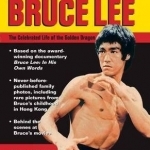
Bruce Lee: The Celebrated Life of the Golden Dragon
Book
A behind-the-scenes look at the life of the most extraordinary martial artist of all time--Bruce...
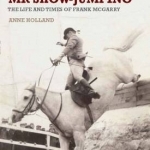
Ireland's Mr Show-Jumping: The Life and Times of Frank McGarry
Book
Frank McGarry was the 'father of Irish show-jumping' as it is known today. An entrepreneur and...

Residential Interior Design: A Guide to Planning Spaces
Maureen Mitton and Courtney Nystuen
Book
A practical approach to planning residential spaces Residential Interior Design: A Guide To Planning...
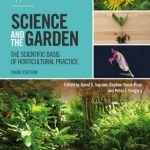
Science and the Garden: The Scientific Basis of Horticultural Practice
David S. Ingram, Daphne Vince-Prue and Peter J. Gregory
Book
Most conventional gardening books concentrate on how and when to carry out horticultural tasks such...
A Balcony Over Jerusalem: A Memoir of the Middle East
Book
A gripping memoir of life in Jerusalem from one of Australia's most experienced Middle East...
Strategy and Choice
Book
From the coalition's desert showdown with Saddam Hussein to the dieter's duel with himself in the...
